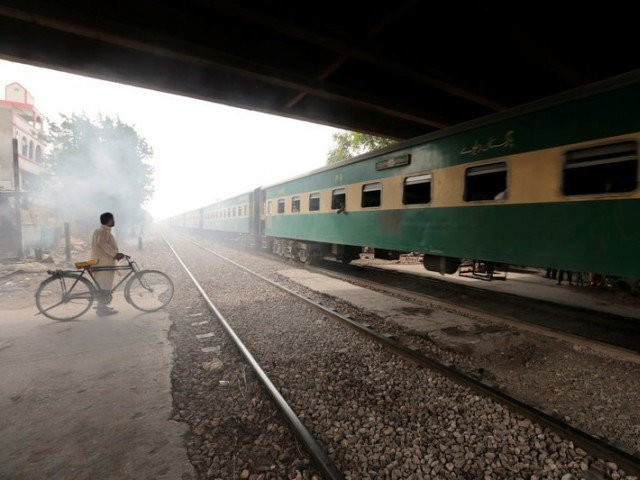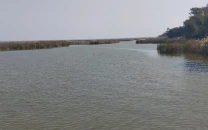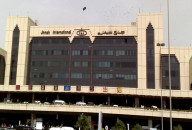Sindh, Railways’ dispute continues over Karachi Circular Railway section
Iqbal sets short deadline for resolving the row before CPEC huddle

A man waits to cross a portion of track once shared with the disused Karachi Circular Railway line in Karachi, Pakistan, May 24, 2017. PHOTO: REUTERS
“There was a dispute between the Pakistan Railways and authorities dealing with the Karachi Circular Railway project over the corridor,” said Ahsan Iqbal, Minister of Planning and Development, on Wednesday.
He briefly spoke to media after chairing a monthly meeting of the CPEC Coordination Review Committee. Chinese Charge d’Affaires Lijian Zhao was present in the meeting.
Railways revival in Karachi faces shanty town delay
The seventh meeting of the Joint Cooperation Committee (JCC) - the highest decision-making body of CPEC - is scheduled to take place on November 21 in Islamabad, but both the authorities have yet to settle their differences.
In its last meeting held in Beijing in December 2016, the JCC agreed, in principle, to include mass transit railway schemes of provincial headquarters in the CPEC framework including the KCR project. The minister said the dispute was related to the rail corridor as the KCR alignment was overlapping the route of another critical CPEC project - upgrading of the railways existing main line from Karachi to Peshawar known as ML-I.
Total proposed cost of ML-I is $8.2 billion and this project may also go to the upcoming JCC huddle for review.
Iqbal asked railway authorities to resolve the row in the current week as a meeting of the CPEC Joint Working Group on Infrastructure was going to take place in the first week of November.
A representative of the Sindh government told the minister that the management of Pakistan Railways was not giving time for holding a meeting to resolve the dispute.
Iqbal pointed out that the KCR route was based on the feasibility study conducted by Japanese consultants and at that time the ML-I project had not been planned.
He made it clear that only those projects would be presented before the JCC that were cleared by the Joint Working Group concerned. A decision on including the multibillion-dollar Diamer Bhasha Dam will also be taken by the working group.
The KCR project has faced delays for the past many years. Only early this month, the Executive Committee of National Economic Council (Ecnec) approved the revival of KCR at a rationalised cost of Rs207.5 billion.
The status of ML-I project was also unclear as authorities were taking more time to complete feasibility studies. Against the plan to complete work in two phases between 2016 and 2020, it seemed that only the first phase can be completed in the given deadline.
The ML-I project involves upgrade of the railways’ existing main line from Karachi to Peshawar having length of 1,872 km. But its preliminary design is not ready, creating hurdles in the way of determining the final cost and making financing arrangements.
It was earlier expected that its revised design would be presented before the last meeting of the Central Development Working Party (CDWP).
The anti-poor bias of Karachi Circular Railway’s revival plan
In June last year, the CDWP approved, in principle, the $8.2-billion PC-I of the project, but it called for first coming up with its firm cost and financing arrangements before seeking go-ahead from Ecnec. Planning Commission documents showed that cost of the first phase would be roughly $3.2 billion.
Iqbal said during the review meeting Pakistan “pressed China to fast-track work on Gwadar projects” and the government would try to seek JCC’s nod for some of the pending projects including a desalination plant.
He revealed that the Gwadar power project of 330 megawatts was ready for groundbreaking, which Prime Minister Shahid Khaqan Abbasi would perform next month. He voiced hope that the plant would be completed by June 2020.
However, the $230-million New Gwadar International Airport remains behind agreed deadlines. The project may be ready by December this year.
Published in The Express Tribune, October 26th, 2017.
Like Business on Facebook, follow @TribuneBiz on Twitter to stay informed and join in the conversation.



















COMMENTS
Comments are moderated and generally will be posted if they are on-topic and not abusive.
For more information, please see our Comments FAQ